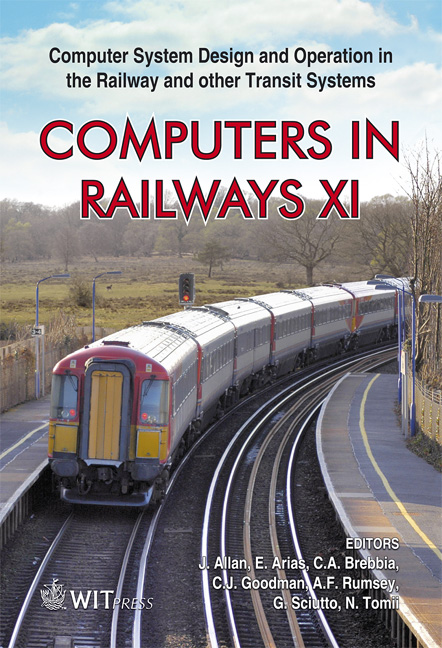Performance Analysis: Improving The Dutch Railway Service
Price
Free (open access)
Transaction
Volume
103
Pages
9
Page Range
463 - 471
Published
2008
Size
1,066 kb
Paper DOI
10.2495/CR080451
Copyright
WIT Press
Author(s)
V. A. Weeda & K. S. Hofstra
Abstract
Growth ambitions in railway transport make adequate capacity management essential. Although current planning rules are meant to support the construction of a feasible timetable, some rules fail to prevent conflicts and others even cause them. Detailed computer-aided performance analysis reveals these problems as occurring in real life. Feedback from operations to planning, in recent years explored and promoted by the Transport and Planning Department of Delft University of Technology, is now accommodated in the Performance Analysis Office of the Dutch railway infrastructure manager ProRail. Lessons learned from operations analyses give rise to advices in various stages of the planning process. Several improvements have been implemented in the past two years making the traffic process more smooth and predictable. Less variation requires smaller buffer times and allows more trains on the existing infrastructure. The paper will issue the opportunities and illustrate the current state of performance analysis by TU Delft and ProRail with recent cases. Keywords: performance analysis, punctuality, capacity management. 1 Introduction More trains and fewer delays are important targets for the government and the railway industry in the Netherlands. These make adequate capacity management increasingly important. In current practice, planning rules are supposed to guarantee feasibility. A look into real life with a more location-specific approach, however, enables a more efficient timetable.
Keywords
performance analysis, punctuality, capacity management.





